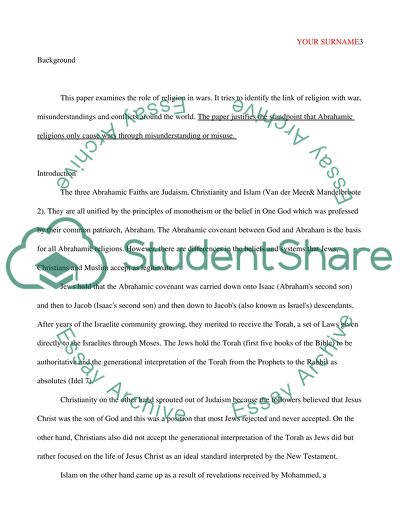Cite this document
(“Do Abrahamic Religions (Judaism, Christianity, and Islam) Cause War Research Paper”, n.d.)
Retrieved de https://studentshare.org/religion-and-theology/1390382-do-abrahamic-religions-judaism-christianity-and
Retrieved de https://studentshare.org/religion-and-theology/1390382-do-abrahamic-religions-judaism-christianity-and
(Do Abrahamic Religions (Judaism, Christianity, and Islam) Cause War Research Paper)
https://studentshare.org/religion-and-theology/1390382-do-abrahamic-religions-judaism-christianity-and.
https://studentshare.org/religion-and-theology/1390382-do-abrahamic-religions-judaism-christianity-and.
“Do Abrahamic Religions (Judaism, Christianity, and Islam) Cause War Research Paper”, n.d. https://studentshare.org/religion-and-theology/1390382-do-abrahamic-religions-judaism-christianity-and.


